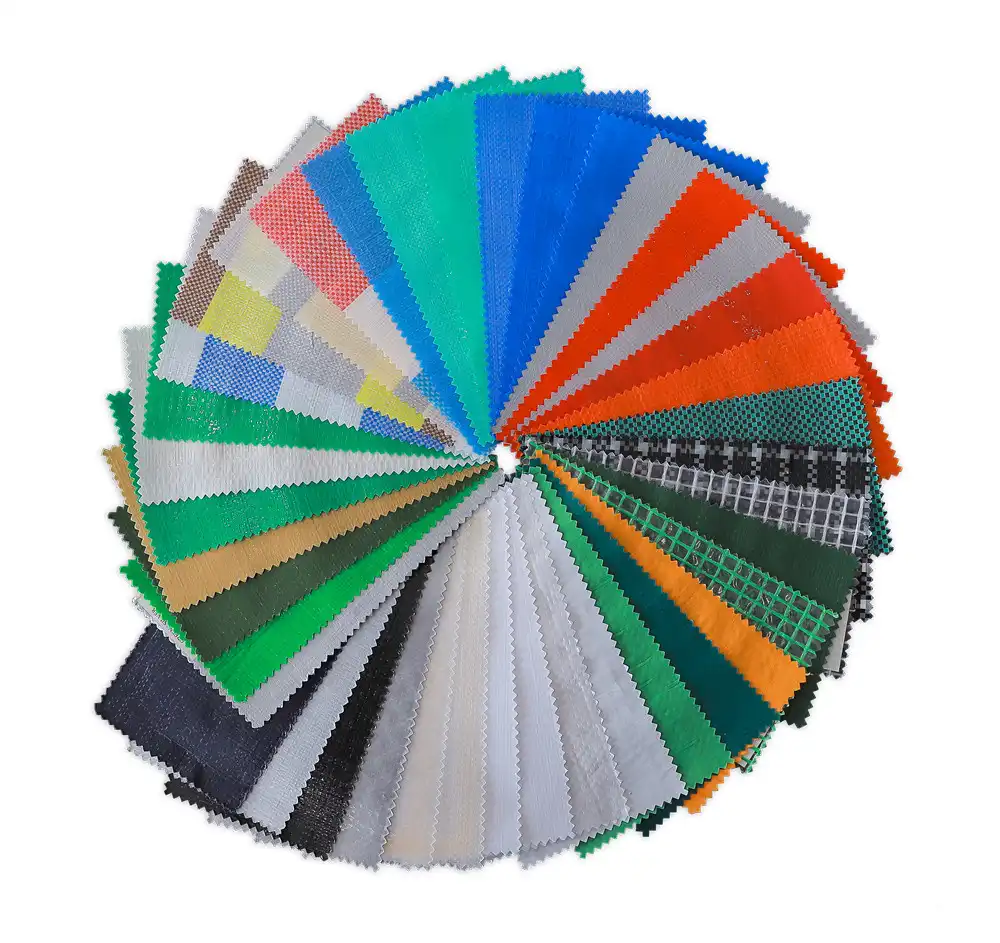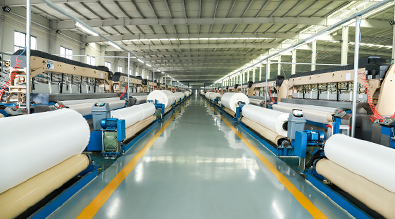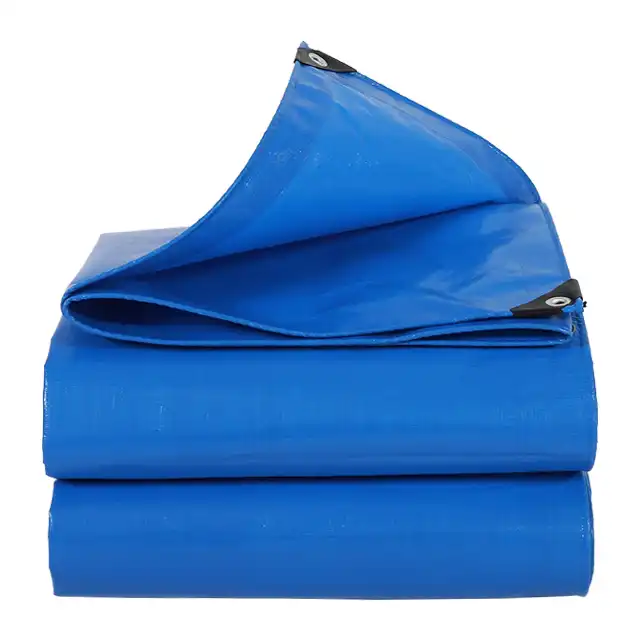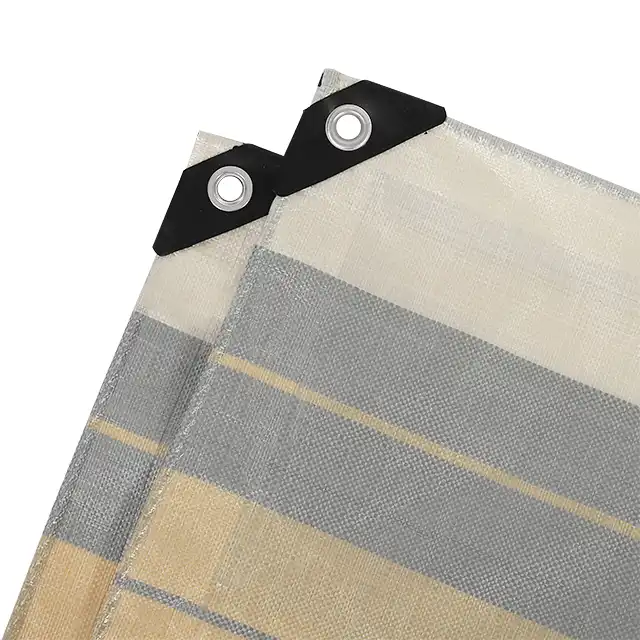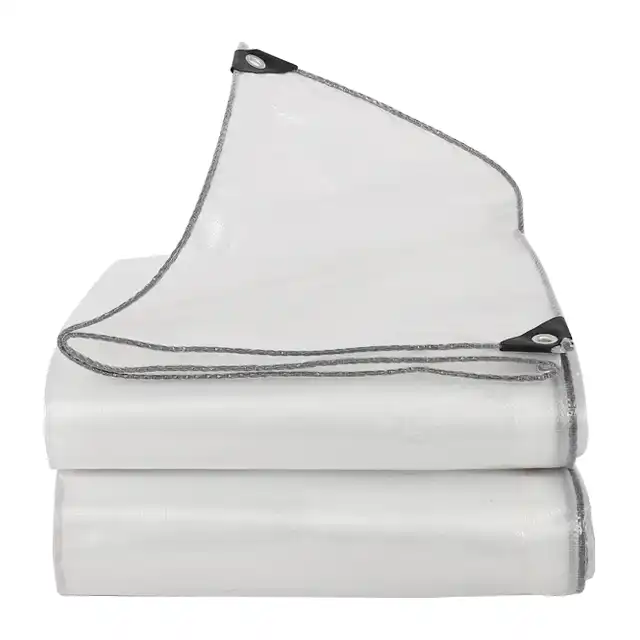Exploring the Versatility of Tarpaulins in Various Industries
Picture this scenario: a sudden downpour threatens your construction site, agricultural produce lies exposed to harsh UV rays, or your transportation fleet requires reliable cargo protection. These common challenges across industries demand one versatile solution - industrial tarpaulin. Modern industrial tarpaulin has evolved from simple protective covers into sophisticated, multi-functional materials that serve as the backbone of operational efficiency across diverse sectors, offering unparalleled protection, durability, and cost-effectiveness for businesses worldwide.
Understanding Industrial Tarpaulin Materials and Construction Technology
 The foundation of effective industrial tarpaulin lies in its advanced construction methodology, which combines cutting-edge materials science with precision manufacturing techniques. Modern industrial tarpaulin products utilize high-density polyethylene (HDPE) woven fabric as the base structure, providing exceptional tensile strength and dimensional stability. This base material undergoes a specialized coating process using low-density polyethylene (LDPE), creating a dual-layer construction that delivers superior waterproofing capabilities while maintaining flexibility across extreme temperature ranges. The manufacturing process begins with yarn extrusion, where high-tech extruding machines produce fibers ranging from 400D to 2500D thickness, allowing manufacturers to customize the strength characteristics according to specific industrial requirements. These fibers are then woven using advanced water-jet looms, creating fabric widths up to 5 meters without joints, eliminating potential weak points that could compromise the industrial tarpaulin's integrity. The coating application process involves professional technicians operating large fabric coating machines that ensure uniform application of protective layers, resulting in products that meet stringent industrial standards for durability and performance.
The foundation of effective industrial tarpaulin lies in its advanced construction methodology, which combines cutting-edge materials science with precision manufacturing techniques. Modern industrial tarpaulin products utilize high-density polyethylene (HDPE) woven fabric as the base structure, providing exceptional tensile strength and dimensional stability. This base material undergoes a specialized coating process using low-density polyethylene (LDPE), creating a dual-layer construction that delivers superior waterproofing capabilities while maintaining flexibility across extreme temperature ranges. The manufacturing process begins with yarn extrusion, where high-tech extruding machines produce fibers ranging from 400D to 2500D thickness, allowing manufacturers to customize the strength characteristics according to specific industrial requirements. These fibers are then woven using advanced water-jet looms, creating fabric widths up to 5 meters without joints, eliminating potential weak points that could compromise the industrial tarpaulin's integrity. The coating application process involves professional technicians operating large fabric coating machines that ensure uniform application of protective layers, resulting in products that meet stringent industrial standards for durability and performance.
-
Quality Control and Performance Standards
Industrial tarpaulin manufacturers implement comprehensive quality monitoring systems throughout the production process, ensuring each product meets international standards for commercial and industrial applications. The coating process incorporates UV treatment ranging from 1% to 7%, providing enhanced protection against harmful solar radiation that could otherwise degrade the material over time. This UV stabilization technology is crucial for outdoor applications where the industrial tarpaulin faces continuous exposure to sunlight, ensuring color retention and structural integrity for extended service life. Weight specifications for industrial tarpaulin typically range from 65gsm to 280gsm, with thickness measurements between 7 to 12 mil, allowing buyers to select appropriate specifications based on their specific application requirements. The mesh count varies from 10x10 to 14x14, directly impacting the material's strength and breathability characteristics. These precise specifications enable industries to optimize their protective solutions while maintaining cost-effectiveness for large-scale operations.
Construction and Building Industry Applications
The construction sector represents one of the largest markets for industrial tarpaulin products, where these materials serve multiple critical functions throughout project lifecycles. Construction sites utilize heavy-duty industrial tarpaulin for scaffolding covers, protecting workers and materials from adverse weather conditions while maintaining job site safety standards. The material's tear-resistant properties ensure reliable performance even in high-wind conditions, while its waterproof characteristics prevent moisture infiltration that could compromise building materials and construction schedules. Temporary roofing applications showcase the versatility of industrial tarpaulin in emergency situations and ongoing construction projects. When permanent roofing materials are unavailable or when immediate weather protection is required, industrial tarpaulin provides a reliable interim solution that can withstand significant weather challenges. The material's arctic flexibility ensures performance in sub-zero temperatures, while its anti-corrosion properties resist degradation from chemical exposure commonly found in construction environments.
-
Specialized Construction Applications
Building encapsulation during renovation projects requires industrial tarpaulin that combines durability with ease of installation. Professional-grade materials feature reinforced edges and grommets strategically positioned to facilitate secure attachment to building structures. The shrink-proof characteristics of quality industrial tarpaulin prevent dimensional changes due to temperature fluctuations, maintaining consistent coverage throughout extended project periods. This stability is particularly valuable for asbestos abatement projects and other hazardous material containment applications where breach of containment barriers could pose serious health risks.
Agricultural and Farming Sector Solutions
Agriculture presents unique challenges that demand specialized industrial tarpaulin solutions designed to protect crops, livestock, and equipment from environmental threats. Greenhouse applications utilize specialized fabric formulations that provide optimal light transmission while offering protection from extreme weather conditions. The material's breathability characteristics can be customized to maintain proper air circulation within agricultural structures, preventing condensation buildup that could promote fungal growth or plant diseases. Crop protection applications require industrial tarpaulin with enhanced UV resistance to prevent degradation during extended outdoor exposure. These materials serve as effective covers for harvested grain, hay bales, and other agricultural products awaiting processing or transport. The waterproof properties ensure that moisture cannot penetrate stored materials, preventing spoilage and maintaining product quality throughout storage periods. Anti-freezing characteristics protect sensitive crops during unexpected temperature drops, extending growing seasons and improving agricultural productivity.
-
Aquaculture and Irrigation Applications
The aquaculture industry relies on specialized impermeable industrial tarpaulin for pond linings, fish farm construction, and water containment systems. These applications demand materials that resist chemical degradation from water treatment compounds while maintaining structural integrity under hydrostatic pressure. The anti-corrosion properties of professional-grade industrial tarpaulin ensure long-term performance in environments where exposure to organic matter and treatment chemicals is constant. Irrigation systems utilize industrial tarpaulin for canal lining, reservoir construction, and water distribution infrastructure. The material's ability to create reliable water barriers helps conserve precious water resources while reducing maintenance requirements for irrigation systems. Custom sizing capabilities allow agricultural operations to optimize their water management systems according to specific terrain and operational requirements.
Transportation and Logistics Industry Usage
The transportation sector depends heavily on industrial tarpaulin for cargo protection, vehicle covers, and logistics operations. Truck covers manufactured from heavy-duty industrial tarpaulin protect valuable cargo from weather exposure, theft, and contamination during transport. The material's tear-resistant properties ensure that covers remain intact even when subjected to highway wind forces and loading/unloading operations. Custom sizing capabilities allow transportation companies to optimize their fleet protection while maintaining compliance with transportation regulations. Rail transport applications utilize specialized industrial tarpaulin designed to withstand the unique challenges of railroad operations, including vibration, wind shear, and extended exposure periods. These covers protect bulk commodities, manufactured goods, and sensitive materials throughout cross-country shipping routes. The material's ability to maintain flexibility in extreme temperatures ensures reliable performance regardless of seasonal variations or geographic destinations.
-
Maritime and Shipping Applications
Marine environments present exceptional challenges for protective materials, requiring industrial tarpaulin with enhanced chemical resistance and salt-water tolerance. Port operations utilize heavy-duty covers for cargo protection during loading, unloading, and storage operations. The material's quick-drying properties prevent moisture accumulation that could damage sensitive goods or promote corrosion of metal containers and equipment. Shipboard applications require industrial tarpaulin that combines lightweight characteristics with exceptional strength to minimize vessel weight while providing reliable protection. These materials must resist degradation from salt spray, UV exposure, and mechanical stress from shipboard operations. The anti-mildew properties of quality industrial tarpaulin prevent biological growth that could compromise material integrity or create health hazards in confined shipboard environments.
Emergency Response and Disaster Management
Emergency response organizations rely on industrial tarpaulin for rapid deployment solutions during natural disasters, humanitarian crises, and emergency situations. Temporary shelter construction utilizes large-format industrial tarpaulin that can be quickly assembled into weather-resistant structures providing immediate protection for displaced populations. The material's lightweight nature facilitates rapid transport to disaster zones while maintaining the strength necessary to withstand challenging weather conditions. Flood control applications showcase the water-resistance capabilities of professional-grade industrial tarpaulin in critical infrastructure protection. Emergency flood barriers constructed from heavy-duty materials can redirect water flow, protect essential facilities, and minimize property damage during flooding events. The material's chemical resistance ensures performance even when exposed to contaminated floodwaters containing industrial chemicals or biological hazards.
Conclusion
Industrial tarpaulin has evolved into an indispensable solution across multiple industries, offering unmatched versatility, durability, and cost-effectiveness for modern business operations. From construction sites requiring immediate weather protection to agricultural operations demanding long-term crop preservation, these advanced materials deliver reliable performance under challenging conditions while maintaining economic viability for large-scale applications.
Cooperate with Linyi Shengde Plastic Co., Ltd.
As a leading China industrial tarpaulin manufacturer, Linyi Shengde Plastic Co., Ltd. has established itself as the premier China industrial tarpaulin supplier since 2003, serving over 30 countries with high-quality industrial tarpaulin for sale. Our comprehensive manufacturing capabilities include 30+ yarn extruding machines, 400+ Korea-imported water-jet looms, and advanced coating facilities that ensure consistent product quality. With ISO 9001:2015 certification and partnerships with UNHCR, IOM, ICRC, and UNICEF, we guarantee reliable China industrial tarpaulin wholesale solutions. Our strong R&D capabilities have developed ultra-wide width products, fire prevention features, and enhanced waterproofing technologies. As your trusted China industrial tarpaulin factory, we offer competitive industrial tarpaulin price with customization options and 4000MT monthly capacity. Contact our High Quality industrial tarpaulin team at info@shengdetarp.com to discuss your specific requirements and receive personalized quotations for your business needs.
FAQ
Q: What industries benefit most from industrial tarpaulin applications?
A: Construction, agriculture, transportation, aquaculture, and emergency response sectors utilize industrial tarpaulin for protection, containment, and operational efficiency.
Q: How do I choose the right weight and thickness for my industrial application?
A: Consider your specific use case - lighter weights (65-100gsm) for temporary covers, medium weights (100-180gsm) for general applications, and heavy weights (180-280gsm) for extreme conditions.
Q: What is the typical lifespan of quality industrial tarpaulin in outdoor applications?
A: With proper UV treatment and quality construction, industrial tarpaulin can last 3-7 years in continuous outdoor exposure, depending on environmental conditions.
Q: Can industrial tarpaulin be customized for specific applications?
A: Yes, professional manufacturers offer customization including size, color, reinforcement patterns, and specialized coatings to meet specific industrial requirements.
References
1. "Industrial Textiles: Materials and Manufacturing" by Johnson, R.K. and Smith, M.A., Textile Industry Publications, 2023.
2. "Polymer Materials in Construction Applications" by Chen, L.H. and Davis, P.R., Construction Materials Research Institute, 2022.
3. "Agricultural Protection Systems and Materials" by Thompson, J.S., Agricultural Engineering Society, 2023.
4. "Emergency Response Materials and Deployment Strategies" by Williams, K.T. and Brown, S.L., Disaster Management Publications, 2024.
